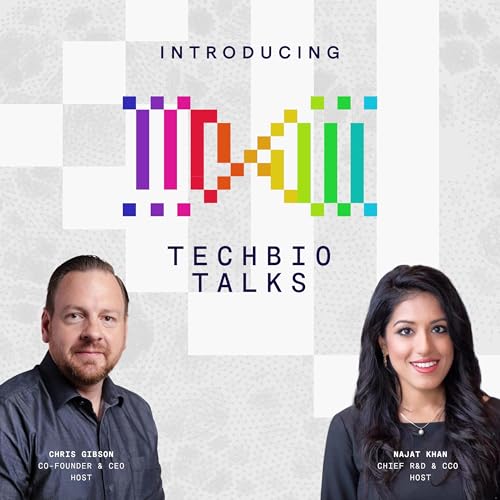In this episode of TechBio Talks, host Najat Khan, PhD, incoming CEO and President of Recursion, talks to Amy Abernethy, MD, PhD, cofounder of Highlander Health, about how structured, analyzable, real-world data is transforming healthcare and medicine.
Amy is a physician, innovator, and executive who has pioneered oncology real-world evidence generation to address gaps in patient care and access.
They discuss the three “waves” of real-world data leading to today’s multimodal data; how that real-world data ties into patients’ longitudinal health story; and the difference between real-world data and real-world evidence. And they dive into how this data is driving major innovative shifts to improve clinical trials and drug discovery.
⏱️ TIMESTAMPS ⏱️
(00:00) Introduction.
(01:47) Defining Real-World Data (RWD) & Real-World Evidence (RWE): The difference between data as a byproduct of care and analyzed evidence.
(03:16) The Three Waves of RWD: From claims data to EHRs, and now multimodal, longitudinal data (genomics, imaging).
(05:49) Use Cases for RWE: Telling the story of what happened (retrospective) vs. planning for the future (clinical trial design).
(06:38) RWE in Drug Discovery: Combining deep biological data with clinical phenotypes to find new targets.
(09:14) Strategic Shift in Pharma: Moving RWE from a "replacement product" to a core strategic asset across the entire R&D lifecycle.
(11:06) Regulatory Evolution: How FDA guidance on data quality and curation is enabling broader RWE adoption.
(14:25) The Evidence Accelerator: How rapid-cycle meetings with the FDA during COVID-19 built regulatory familiarity with RWE.
(16:18) Introducing Highlander Health: A dual-model approach (non-profit institute + for-profit investment arm) to accelerate clinical research.
(21:48) AI’s Role in Evidence Generation: Using AI for data curation, study design optimization, and patient recruitment.
(24:41) The "Mantra": AI requires high-quality data; we must go back to the roots of getting the data right.
(27:47) What to Watch For: Disciplined, LLM-enabled data curation and the rise of prospective-retrospective hybrid study designs.
 29 分
29 分 26 分
26 分 24 分
24 分 27 分
27 分 1 分
1 分 2025/08/211 分
2025/08/211 分
